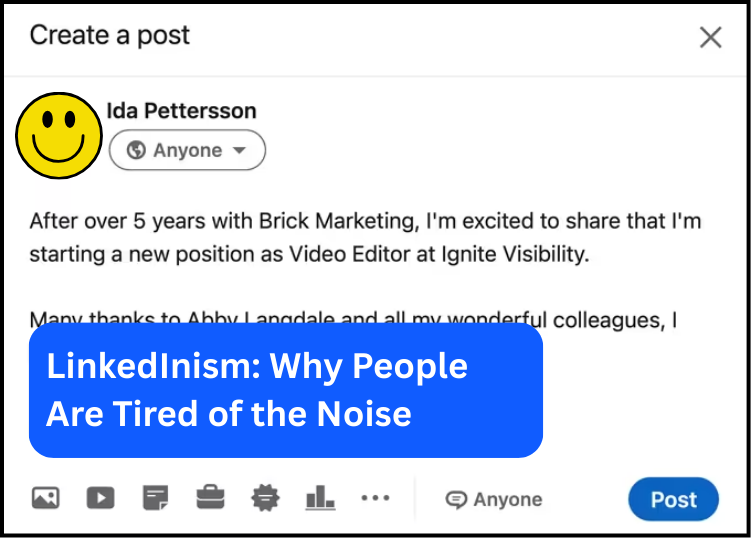The job application process has changed more in the past five years than it did in the two decades before it. Thanks to the rise of automation, remote work, and digital-first hiring strategies, resumes are no longer simply printed documents—they are dynamic records filtered, read, and ranked by machines. In this new environment, the traditional resume process is breaking down. It is slow, inconsistent, and difficult to tailor.
Enter the AI CV builder. This new generation of tools is helping job seekers navigate a complex hiring landscape with smarter, faster, and more effective resume creation. In this article, we break down the evolution of CVs, the problems with traditional approaches, how AI CV builders work, and why platforms like Hello.cv are setting a new standard.
The Current State of Job Applications
Today, hiring managers and recruiters are overwhelmed with applications. A single listing for a remote or entry-level position can receive hundreds or even thousands of resumes. To manage the volume, companies rely on Applicant Tracking Systems (ATS) and AI-driven screening tools to filter applicants before a human ever reviews their information.
For job seekers, this means the resume has to do more than ever:
- Pass automated scans for relevant keywords
- Present a clean, structured layout for human readability
- Showcase measurable impact
- Be tailored for specific roles
- Be mobile and web-friendly
Unfortunately, the average resume fails to meet many of these demands.
Pain Points in Traditional Resume Building
1. Time-Consuming Formatting
Most people spend hours manually formatting resumes in word processors or using overly rigid templates that break with every update.
2. No Guidance or Feedback
Traditional builders and editors offer little help beyond formatting. They do not offer suggestions based on role type, industry, or content clarity.
3. Incompatibility with ATS
Many visually appealing resumes are unreadable by screening software. Graphic-heavy resumes and PDF exports often lose structure when parsed by machines.
4. No Room for Iteration
Customizing a resume for each job becomes a painful and repetitive task. There’s no simple way to adjust language, reframe results, or test different versions.
5. Not Built for Online Sharing
Static PDF resumes do not work well on mobile, are hard to update on the fly, and make it difficult for hiring managers to learn more about a candidate’s body of work.
What AI CV Builders Solve
AI CV builders offer a smarter, more scalable alternative. They use natural language processing, content analysis, and data structuring to transform raw career information into a clean, persuasive CV—optimized for both human and machine reading.
Key Features of AI CV Builders:
- Resume parsing: Understands content from uploads, bios, or pasted text
- Auto structuring: Organizes sections based on role or career stage
- Keyword optimization: Aligns content with ATS requirements
- Language refinement: Improves clarity and tone automatically
- Instant updates: Quickly revise content without reformatting
- Web-ready: Converts resume into a live, shareable CV website
Hello.cv: A New Approach to CV Building
Hello.cv is a modern AI-powered CV builder that simplifies the process of creating, hosting, and sharing professional resumes. What makes it different is not just automation—it’s intelligence and presentation.
How It Works:
- Upload a resume file, paste content, or write a short bio
- AI reads and understands your content
- A full CV website is generated instantly
- You can customize sections or revise text anytime
- Publish to yourname.cv and start sharing
There is no need to select templates, drag and drop blocks, or worry about formatting. The system builds a site that looks professional and adapts to your career level.
Benefits of Hello.cv:
- Faster than any manual builder
- Looks polished across devices
- Includes a personal .cv domain
- Search engine optimized for better discoverability
- Focused on simplicity—no complex toolsets required
Case Studies: Real-World Applications
Case 1: Mid-Career Professional Switching Industries
Kemi, a customer support manager with eight years of experience, wanted to move into product design. She used Hello.cv to upload her resume and highlight transferable skills. The AI helped her reframe her experience for design-focused roles. Within weeks, her site was viewed by multiple recruiters, leading to two interviews.
Case 2: Freelance Developer Targeting Clients
Leon, a self-taught frontend developer, needed a way to send a polished overview of his work to potential clients. His Hello.cv site combined his bio, projects, and contact info into one clean link—no hosting or coding required. He now includes it in his proposals and LinkedIn profile.
Case 3: Student Building Career Visibility
Isha, a recent grad with minimal work experience, used Hello.cv to convert her academic projects, part-time roles, and certifications into a structured CV site. Her .cv domain helped her stand out when applying to internships and early-career programs.
Implementation Guide: How to Use an AI CV Builder
Step 1: Prepare Your Info
Gather the basics:
- Resume (PDF or DOCX)
- Project summaries or work samples
- Education and skills
- Short bio or elevator pitch
Step 2: Upload and Let AI Work
Head to Hello.cv and input your content. You can paste your resume, upload it, or write a summary of your experience.
The AI structures your information into relevant sections, formats it clearly, and prepares a live site version.
Step 3: Review and Refine
You can edit your content anytime. Add new roles, rewrite summaries, or update your positioning. The interface is clean and easy to use—no coding or design knowledge required.
Step 4: Publish and Share
Once ready, your site can go live on a .cv domain like yourname.cv. Share this link in applications, on your LinkedIn profile, or as part of your email signature.
Step 5: Keep It Updated
Unlike static resumes, your Hello.cv site can evolve with your career. Update it regularly to reflect new roles, skills, or achievements.





